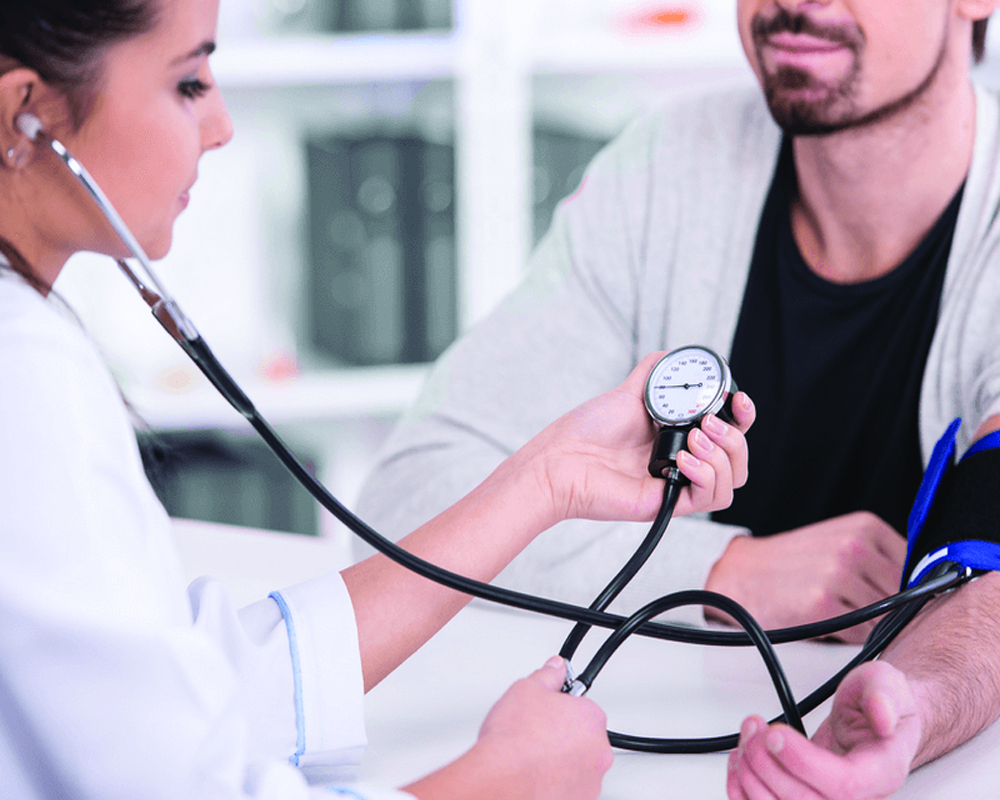You can reduce your risk for high blood pressure with healthy lifestyle changes; just stick around with a few simple tips
In India at least one in three adults in India have hypertension, also known as high blood pressure. The ongoing pandemic has revealed how people with hypertension are at greater risk of becoming severely ill or dying from COVID-19. Research indicates that most people are unaware that they have high blood pressure and even if diagnosed, they are either irregular with their medication or discontinue taking it after a while. Studies have also shown that patients with hypertension but not on medications had a significantly higher risk of mortality compared with those on medication, if they got Covid-19.
In the past World Health Organisation (WHO) and Indian Council of Medical Research (ICMR) have issued various warnings and guidelines for people with chronic conditions, particularly hypertensives to ensure they continue their treatment - through telemedicine whenever possible and keep taking the prescribed medicines. On this World Hypertension Day, it is critically important for India to pay attention to this silent killer and take adequate precautions.
Dos and don;lts:
Secure your supply of blood pressure medicines. Keep a stock of at least 90 days.
Continue to take medicines for blood pressure and other chronic conditions such as diabetes as prescribed by the doctor.
If possible, regularly measure your blood pressure at home. If it fluctuates, consult your doctor remotely. Do not change your treatment without a medical opinion.
Avail of telemedicine facility if you develop coronavirus symptoms or feel unwell. In the last one year, 35 lakh Indians have dialled E-Sanjeevani, the government's telemedicine platform for a medical consultation.
Avoid consuming excess salt in your food
Risk Factors associated with hypertension
Hypertension can lead to severe health complications and increase the risk of heart disease, stroke, and sometimes death. It is a primary risk factor for cardiovascular disease, including stroke, heart attack, heart failure, and aneurysm. Uncontrolled hypertension may affect eyes; leading to Hypertensive Retinopathy which may lead to irreversible blindness. Keeping blood pressure under control is vital for preserving health and reducing the risk of these dangerous conditions. High blood pressure is often symptomless and quietly damages blood vessels leading to serious health problems. While there is no cure, using medications as prescribed and making lifestyle changes can enhance your quality of life and reduce your risk of heart disease, stroke, kidney disease and more.
You can reduce your risk for high blood pressure with healthy lifestyle changes. If you already have high blood pressure, the same lifestyle changes combined with medication therapy (as recommended by your provider) can also help you control it. Certain individuals are more likely to develop high blood pressure than others if they have a family history of hypertension or consume diets rich in salt, saturated fats, consume tobacco or alcohol and are overweight. Stress can also raise your risk of developing high blood pressure.Hypertension typically develops over the course of several years. Usually, you don't notice any symptoms. But even without symptoms, high blood pressure can cause damage to your blood vessels and organs, especially the brain, heart, eyes, and kidneys.
The first criteria to deal with hypertension or high blood pressure is early detection. Regular blood pressure readings can help you and your doctor in noticing any change. If your blood pressure is elevated, the health provider may need to keep checking it for over a few weeks to see if the number stays elevated or falls back to normal levels. Treatment for hypertension includes both prescription medication and healthy lifestyle changes.
The author is a Member of Parliament Rajya Sabha and Padmashri awarded Opthalmologist


























